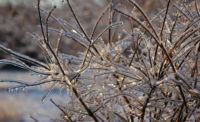How to have a heart healthy summer

Summer is in full swing – that means high temperatures that not only encourage people to head outdoors for barbeques and getting active, but that heat can also be harmful to your heart health. This summer, the American Heart Association (AHA) wants to encourage you to protect your heart by following these simple steps:
Stay hydrated
Staying hydrated helps your heart pump blood more easily through the vessels to the muscles. Being well hydrated means your heart doesn’t have to work as hard.
Always drink water before you go out in the sun so your heart isn’t straining itself to catch up. Becoming dehydrated is a dangerous thing and can lead to swollen feet, headache, and even heat exhaustion or stroke. Drinking water after a workout is extremely important too, and there are many different ways to re-hydrate your body. Water can be found in a variety of places such as foods like fruits and vegetables. Sports drinks can also be beneficial for those doing vigorous exercise since they contain electrolytes, however they are usually high in sugars and calories.
Not sweating during vigorous physical activity can be a bad sign that you’re dehydrated and in danger of developing heat exhaustion.
Exercise smarter, not harder
- Exercising in the summer heat can be dangerous. Consider these tips on how to stay safe and healthy this season:
- Get off on the right foot. You probably sweat the most in your shoes, so choose well-ventilated shoes and look for socks that repel perspiration. Foot powders and antiperspirants can also help with sweat.
- Dress for the heat. Wear lightweight, light-colored clothing in breathable fabrics such as cotton, or a newer fabric that repels sweat. Add a hat and/or sunglasses.
- Drink up. Stay hydrated before, during, and after a workout. Avoid caffeinated or alcoholic beverages.
- Before you get started, apply a water-resistant sunscreen with at least SPF 15, and reapply it every two hours.
- Take regular breaks. Find some shade or a cool place, stop for a few minutes, hydrate and start again.
Learn more here.
Eat healthy
Summertime means grilling and barbeque season as well as countless fresh seasonal fruits and vegetables. Keep these tips in mind when making delicious meals that are also heart-healthy:
- Fish and chicken breast are healthier alternatives to red meat, but if you are buying red meat, try to get “loin” or “round” cuts since they have less fat.
- Take advantage of summer seasonal foods by serving up a salad or side dishes filled with raw fruits and veggies.
- Grilled fruits (like pineapples and peaches) and smoothies are healthier alternatives to commercially baked desserts.
- Drink as much water as you can, but if you’re drinking soda it’s best to go for the diet option since it has less sugar and calories.
- Use whole-grain breads and low fat cheeses, and reduce sodium by leaving off that extra shake of salt.
Learn more here.
Be aware of heat exhaustion and stroke
Two of the greatest risks of spending too much time outdoors during the summer are heat exhaustion and heat stroke. Heat exhaustion is brought on by severe dehydration and is characterized by headache, dizziness or lightheadedness, weakness, cool or moist skin, dark urine, nausea, and vomiting.
Heat stroke happens when the body is no longer to regulate its temperature, and it keeps rising. If you experience any of these symptoms, cool yourself off with water or shade and call 9-1-1 if they don’t go away: high fever (above 104 degrees F), hot, dry, or red skin, fast or weak pulse, fast or shallow breathing, irrational behavior or extreme confusion, seizure, or unconsciousness.
Looking for a reprint of this article?
From high-res PDFs to custom plaques, order your copy today!





